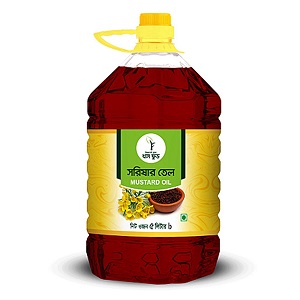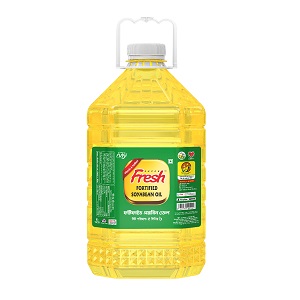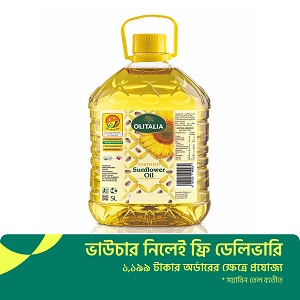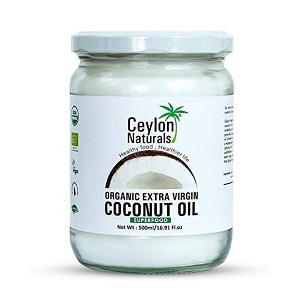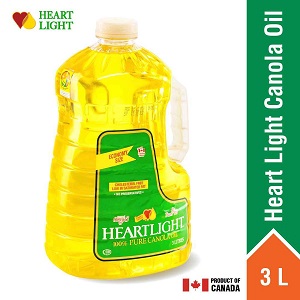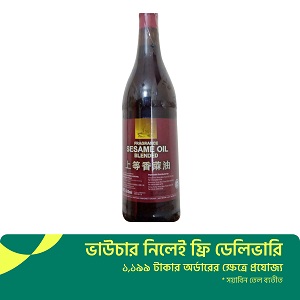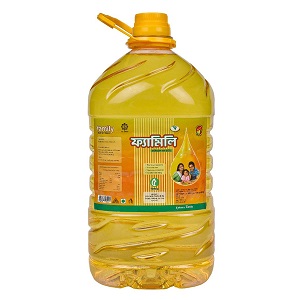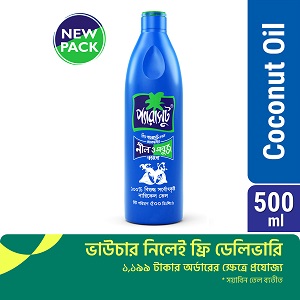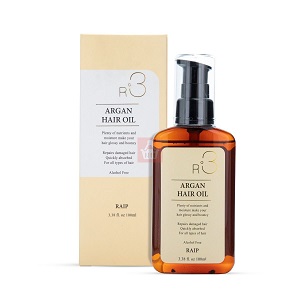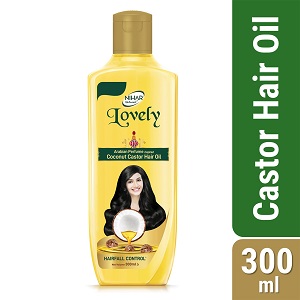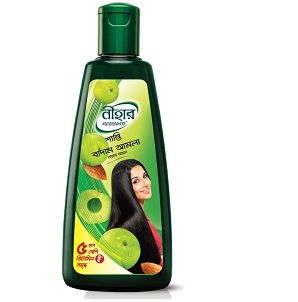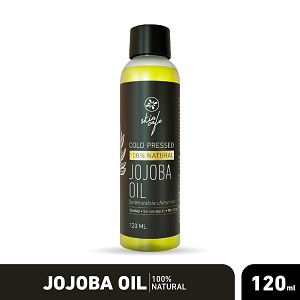When it comes to daily essentials, few items hold as much significance as cooking oils and hair oils. These products play a vital role in our daily lives, ensuring the well-being of both our bodies and our hair.
In Bangladesh, where culinary and beauty traditions are deeply rooted, choosing the right cooking and hair oils is paramount. In this article, we’ll explore some of the best options for cooking oils and hair oils that are perfect for daily use.
Looking for a convenient way to complete your grocery shopping online? Daraz Mart is the biggest online grocery shop where you’ll get all grocery items at the best price on the same day, including cash on delivery.
Visit Daraz Anniversary Sale 2023 and enjoy the best offers and deals on all groceries including oil, rice, sugar, cooking ingredients, and so on.

Best Cooking Oils Review
Cooking oils play a fundamental role in the culinary world, influencing dishes’ taste, texture, and nutritional profile. The commonly used cooking oils are Soyabean, Mustard, and Coconut oil. Besides, Sunflower, olive, canola, sesame, and palm oil are also popular for cooking. Let’s take a look at the benefits of each of these oils.
1. Mustard Oil
A staple in Bangladeshi kitchens, mustard oil, is known for its distinct flavor and numerous health benefits. Mustard oil is a versatile cooking oil with a unique flavor profile that adds depth to dishes. It’s derived from mustard seeds and is popular in various cuisines.
Benefits
- Distinct Flavor: Mustard oil has a strong and pungent flavor, making it a popular choice for pickles, marinades, and Indian cuisine.
- Antibacterial Properties: Due to its high content of allyl isothiocyanate, mustard oil has natural antibacterial properties that can help preserve foods.
- Rich in Monounsaturated Fats: It contains a good balance of monounsaturated and polyunsaturated fats, contributing to heart health.
2. Soybean Oil
Soybean oil is widely used and recognized for its neutral taste and versatility in cooking. It’s derived from soybeans and is a staple in many households.
Benefits
- Neutral Flavor: Soybean oil’s mild taste makes it suitable for a wide range of cooking methods, from sautéing to frying.
- Omega-6 Fatty Acids: It contains omega-6 fatty acids supporting heart health and well-being.
- High Smoke Point: Soybean oil’s high smoke point makes it suitable for deep frying and cooking at high temperatures.
3. Sunflower Oil
Sunflower oil is known for its light flavor and health benefits. It’s extracted from sunflower seeds and is commonly used in various culinary applications.
Benefits
- Vitamin E: Sunflower oil is rich in vitamin E, an antioxidant that supports skin health and immune function.
- Light Flavor: Its mild taste allows the natural flavors of ingredients to shine through, making it a versatile choice for both cooking and baking.
- Low Saturated Fat: Sunflower oil is low in saturated fat and is considered heart-healthy.
4. Coconut Oil
Coconut oil is celebrated for its distinctive aroma and numerous health properties. It’s obtained from the flesh of coconuts and is commonly used in tropical cuisines. While commonly used in traditional Bangladeshi sweets and desserts, coconut oil is gaining popularity as a cooking oil.
Benefits
- Medium-Chain Fatty Acids: Coconut oil contains medium-chain triglycerides (MCTs), which are rapidly metabolized and may contribute to energy production.
- Aromatic Flavor: Its natural coconut aroma lends a unique flavor to dishes, making it a popular choice for curries, stir-fries, and baking.
- Hair and Skin Care: Coconut oil is not only used in cooking but also in hair and skincare routines due to its moisturizing and nourishing properties.
5. Olive Oil
Olive oil is celebrated for its rich flavor and various health benefits. It comes in different varieties, such as extra virgin, virgin, and light olive oil. Extra virgin olive oil is considered the highest quality, obtained from the first pressing of olives, and undergoes minimal processing.
Benefits
- Heart Health: Olive oil is a staple of the Mediterranean diet, which is associated with a reduced risk of heart disease. It is rich in monounsaturated fats, which can help lower bad cholesterol levels.
- Antioxidants: Extra virgin olive oil contains antioxidants, including vitamin E and polyphenols, contributing to its anti-inflammatory properties.
- Flavor Enhancer: Its distinct flavor enhances the taste of dishes, especially in salads, dressings, and Mediterranean-inspired recipes.
6. Canola Oil
Canola oil is known for its neutral flavor and versatility in cooking. It is derived from rapeseed and is often used as a substitute for other cooking oils due to its mild taste.
Benefits
- Low Saturated Fat: Canola oil has a low saturated fat content, making it a heart-healthy option.
- Omega-3 Fatty Acids: It contains alpha-linolenic acid (ALA), an omega-3 fatty acid that supports brain health and reduces inflammation.
- High Smoke Point: Canola oil’s high smoke point suits it for various cooking methods, including frying and baking.
7. Sesame Oil
Sesame oil is popular in Asian cuisines and is known for its distinctive nutty flavor. There are two types of sesame oil: toasted (dark) and untoasted (light).
Benefits
- Nutrient Rich: Sesame oil is a source of essential nutrients, including vitamin E, which acts as an antioxidant.
- Flavor Enhancer: Its unique flavor enhances the taste of stir-fries, dressings, and marinades.
- Antibacterial Properties: Sesame oil contains sesamol and sesamin, compounds with potential antibacterial and antioxidant effects.
8. Palm Oil
Palm oil is derived from the fruit of oil palm trees and is used in various cooking applications. There are two types: red palm oil and refined palm oil.
Benefits
- Vitamin A: Red palm oil contains beta-carotene, a precursor to vitamin A, which supports vision and immune health.
- Versatility: Palm oil’s semi-solid consistency at room temperature makes it suitable for baking and frying.
- Long Shelf Life: Its high saturated fat content contributes to its stability, giving it a longer shelf life.
Best Hair Oils Review
Hair care is an integral part of self-care, and using the right hair oils can make a significant difference in maintaining healthy and lustrous hair. Let’s explore the benefits and properties of four popular hair oils: coconut oil, olive oil, castor oil, and almond oil.
1. Coconut Oil
Coconut oil is a versatile oil that has gained immense popularity in hair care routines. It is rich in nutrients and can be used for various hair treatments.
Benefits
- Deep Moisturization: Coconut oil’s molecular structure allows it to penetrate hair strands, providing deep hydration and reducing protein loss.
- Hair Growth: Its nutrients and fatty acids nourish the scalp, promoting healthier hair growth.
- Strength and Shine: Regular use of coconut oil can strengthen hair, reduce split ends, and enhance natural shine.
2. Argan Oil
Argan oil, often referred to as “liquid gold,” is derived from the kernels of the argan tree native to Morocco. It has become a staple ingredient in many hair care products due to its remarkable properties.
Benefits
- Deep Hydration: Argan oil is rich in essential fatty acids and vitamin E, making it an excellent moisturizer for dry and brittle hair. It penetrates the hair shaft, providing deep hydration and nourishment.
- Frizz Control: This oil helps tame frizz and smooth out the hair cuticles, resulting in shinier and more manageable locks.
- Protection: Argan oil’s antioxidant properties shield your hair from environmental damage and UV radiation.
- Promotes Hair Growth: The vitamin E in argan oil supports a healthy scalp, which in turn can promote hair growth.
- Heat Protection: When applied before heat styling, argan oil forms a protective barrier that reduces damage caused by high temperatures.
3. Castor Oil
Castor oil is celebrated for its potential to promote growth and strengthen hair. It is rich in ricinoleic acid and other nutrients.
Benefits
- Hair Growth: Castor oil’s ricinoleic acid is believed to stimulate hair follicles, leading to improved hair growth.
- Thicker Hair: It can contribute to hair thickness and density over time.
- Scalp Health: Castor oil’s antibacterial properties can help maintain a healthy scalp environment.
4. Almond Oil
Almond oil contains vitamins and minerals that benefit hair and scalp health. It is especially known for its nourishing properties. Massaging almond oil on the scalp can also improve circulation and promote relaxation.
Benefits
- Nutrient Boost: Almond oil contains vitamin E, magnesium, and biotin, which promote hair health.
- Reduces Hair Loss: It can help reduce hair breakage and loss, leading to healthier-looking hair.
- Adds Shine: Almond oil’s lightweight texture adds a natural shine to hair without making it greasy.
5. Jojoba Oil
Jojoba oil is extracted from the seeds of the jojoba plant, native to the Southwestern United States and Mexico. It is remarkably similar in composition to the natural oils produced by our skin and scalp.
Benefits
- Balances Scalp Sebum: Jojoba oil’s composition closely resembles the skin’s natural sebum, making it an ideal choice for balancing scalp oil production. It can help regulate both oily and dry scalps.
- Moisturizing: Like argan oil, jojoba oil is an effective moisturizer that hydrates the hair without making it greasy or heavy.
- Prevents Hair Loss: Jojoba oil’s nourishing properties can help prevent hair breakage and minimize hair loss.
- Cleansing and Detoxifying: It can help unclog hair follicles, remove product buildup, and promote a healthier scalp environment.
- Adds Shine: Jojoba oil imparts a natural shine to hair without the use of synthetic ingredients.
Hair Oil Application Tips
- For a scalp massage, warm the oil slightly and gently massage it onto the scalp using circular motions to improve blood circulation.
- To nourish hair strands, apply the oil from the mid-length to the ends, focusing on dry and damaged areas.
- Leave the oil on for a minimum of 30 minutes or overnight for a more intensive treatment.
- Remember that individual hair types and needs vary, so it’s a good idea to experiment with different oils and observe how your hair responds.
Conclusion
Selecting the right cooking oils and hair oils is essential for maintaining your well-being and enhancing your beauty routine. In Bangladesh, where food and self-care traditions are deeply cherished, these oils play a crucial role.
Whether you’re creating delectable dishes or nourishing your hair, the options mentioned above are some of the best choices for daily use. Everyone’s preferences and needs may vary, so trying different oils and finding what works best for you is a good idea.
Shuvo Roy, an enthusiastic Content Writer & Researcher, has expertise in several industries, especially in IT, Software & E-commerce. Moreover, he is a strategic planner.

